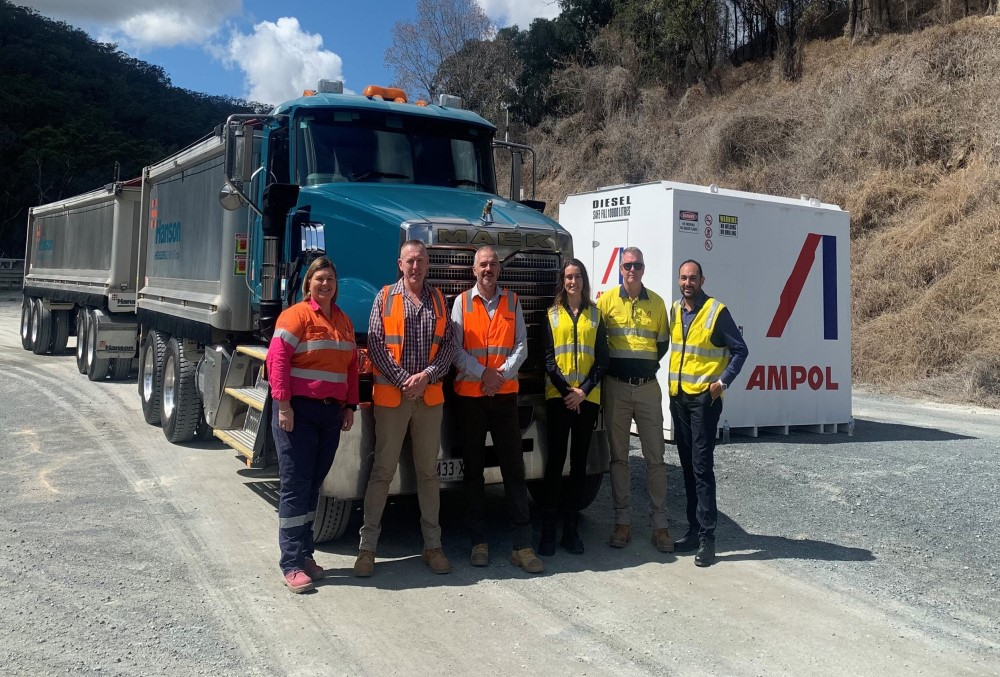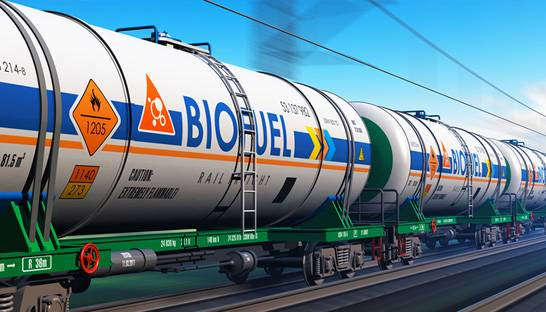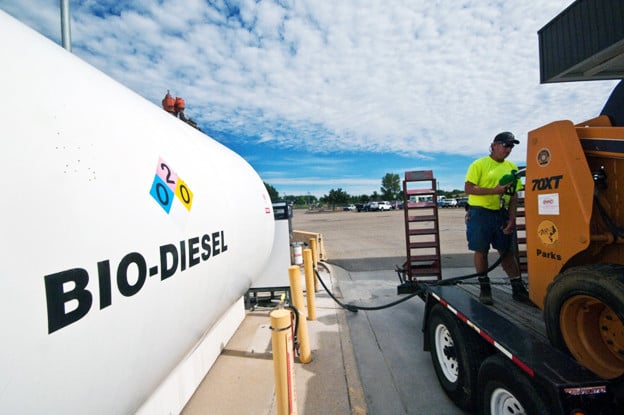
Ampol to Trial Biofuels in Hanson Trucks
Ampol will start a renewable diesel trial with logistics and construction company Hanson as a precursor to manufacturing biofuel planned to be made at a joint-venture plant in Brisbane.
The trial will allow Ampol to get a practical understanding of the customer demand and market feasibility of renewable diesel in Australia ahead of the planned local production of biofuel.
Ampol will supply Hanson trucks with a blend consisting of 20 per cent renewable diesel and 80 per cent ultra-low sulphur diesel in addition to its Ampol Amplify additives.
Ampol and and its JV partner, Japan’s biggest oil company ENEOS Group entered into a partnership in March this year to look at producing renewable fuels at Ampol’s Lytton refinery in Brisbane.
Ampol executive general manager, International and New Business, Brent Merrick, said the trial strengthens Ampol's position as a leading supplier of world-class quality fuels.

“Ampol is proud of the role it plays in supporting our customers. We are acutely aware that our customers' transport energy priorities are shifting, and that partnering with industry leaders such as Hanson is vital in ensuring we continue to evolve,” he said.
“This renewable diesel trial is another step in our development of a renewable fuels business in Australia. The availability of renewable diesel, particularly for hard-to-abate areas, is of particular interest as it does not require vast fleet or infrastructural changes.
“Renewable diesel has an important role to play in the energy transition. We would like to thank Hanson for committing to this journey with Ampol.”
Hanson is a leader in building and construction materials with an extensive production and logistics network across Australia.
Its chief executive, Phil Schacht, said: “This trial furthers Hanson’s commitment to CO2 reduction across the supply chain, with innovation being the key to our roadmap.”
The trial will start in the coming weeks and run for about two months, with an evaluation process to be executed prior to exploring a wider roll out to Ampol's broader customer base.
The JV with ENEOS in ongoing and has included a separate memorandum of understanding (MoU) with the Queensland Government as part of the Queensland Biofutures 10-Year Roadmap.
Ampol and ENEOS will jointly explore the feasibility of delivering an advanced biofuels manufacturing facility with the capacity to generate up to 500 million litres of sustainable aviation fuel (SAF) and renewable diesel annually.
Initial work will consider the use of agricultural, animal and other waste feedstocks prevalent in the Queensland market and seek to leverage the use of existing refinery manufacturing and distribution infrastructure to produce biofuels for domestic use and for the export market where possible.

The project will use each company’s strengths, bringing Ampol’s existing refining and distribution infrastructure and knowledge about Australia’s aviation and broader transport fuels market, together with ENEOS’ expertise in refining technology, energy transition and leadership in the Japanese aviation and broader transport fuels market.
Ampol’s managing director and CEO, Matt Halliday, said biofuels and synthetic fuels have an important role to play in energy transition, particularly in hard to abate areas such as aviation, and heavy industrial sectors like mining.
“These are important market segments for Ampol. As we continue our work to build new solutions for customers, we are excited to partner with a global leader like ENEOS to further assess opportunities to repurpose our existing infrastructure and build new supply chains,” he said.
ENEOS' representative director, president, Saito Takeshi, said ENEOS looks forward to contributing to decarbonising the aviation industry in the Asia-Pacific region, including Australia and Japan, through the realisation of value chains and stable supply of biofuels, especially SAF.
“Integrated supply chains – from feedstocks to manufacturing and distribution infrastructure – will be critical to the development of a successful and sustainable biofuels industry.,” he said.
“Queensland is uniquely positioned given the availability of high-quality feedstocks from established industries. In addition, the location of Ampol’s manufacturing and distribution assets provides a great platform from which to explore SAF production.”
Initial work on the project will include exploring potential counterparties in Queensland to provide feedstock and demand for product offtake. Ampol and ENEOS will also work with the Queensland Government as part of its strategy to attract clean energy investment.
Ampol and ENEOS will also consider opportunities for engagement with the Japanese Government’s strategy to invest in projects that can support the country to achieve carbon neutrality by 2050.
In Japan, SAF is expected to be an effective way to reduce emissions, with the Ministry of Land, Infrastructure, Transport and Tourism setting a target of 10 per cent SAF use to be achieved by 2030.
View Recently Financed Trucks by Credit One.
Commercial vehicles are a serious investment, and getting truck finance right matters when your livelihood depends on keeping vehicles on the road. Credit One specializes in transport operators and understands what you're dealing with. As Australia's best-reviewed finance broker with 3,000+ Google reviews from operators nationwide, they've proven the approach works. Check out Credit One reviews to see for yourself, then use the loan repayment calculator to understand your options.